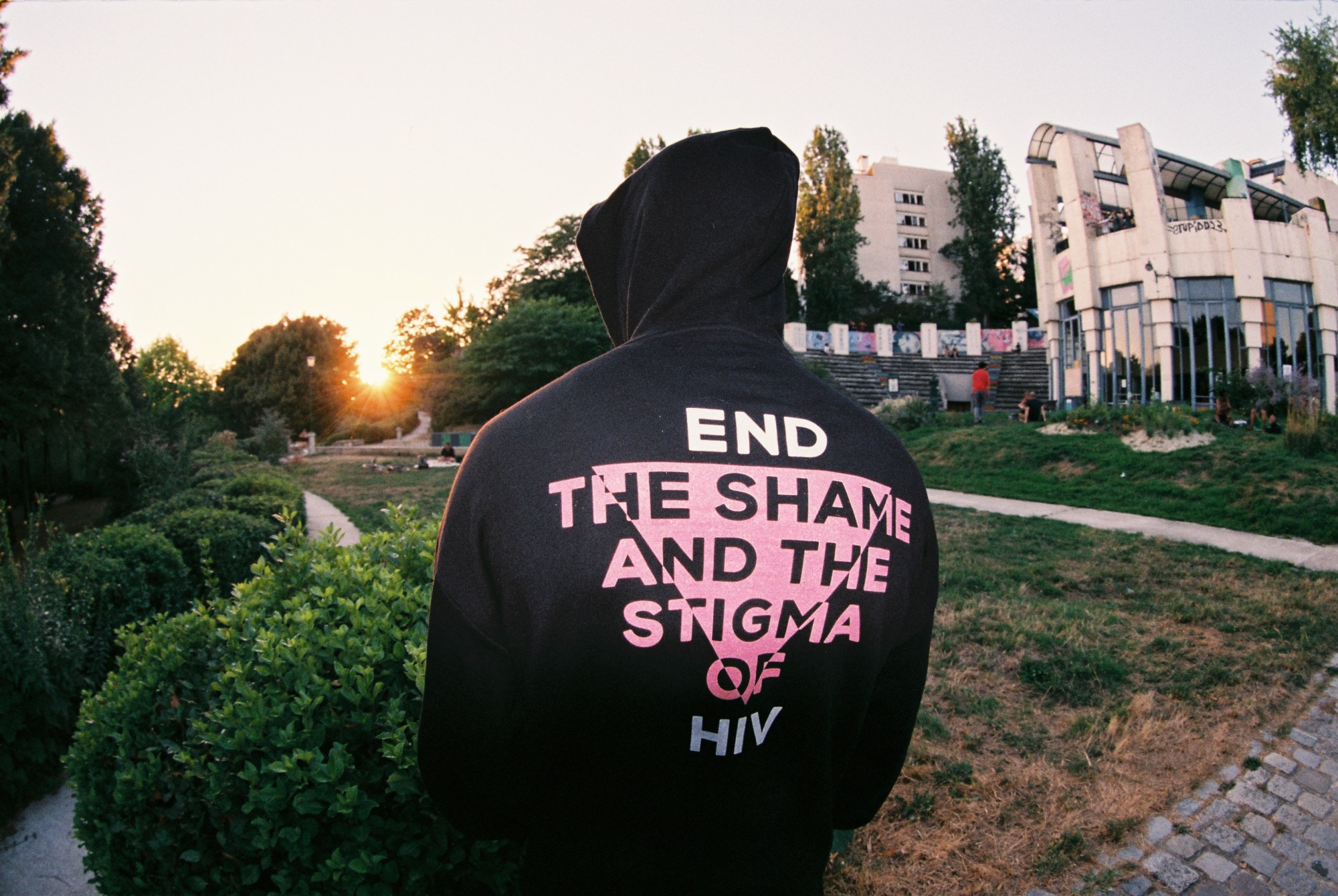When Yassin Chekkouh, a Paris-based model, came out as HIV positive in a post on Instagram this past June, he saw the decision to be explicitly open about his status as a way to regain control of his life. “I was done living with this secret and letting some malicious gays have the power to make me feel so small and shitty about it,” he says. Since receiving a positive diagnosis five years ago, he’s faced blatant serophobia — an aversion and prejudice towards people living with HIV — on a daily basis, both through interactions in real life as well as on social media and dating apps.
He frequently receives hate messages on Grindr and Instagram from anonymous accounts who say that he has “an AIDS face” or that he’s “beautiful, but HIV positive”. Some messages have even directly threatened his sense of security. “The worst thing I’ve ever received was from another anonymous account, who started to tell me about how I got the virus. It’s a very intimate story that I’d only shared with my best friends. I had to sit cause I was on the edge of a panic attack.”
Not only has he experienced serophobia from strangers, but also from past partners, who would either ghost him upon learning about his status or, worse, fetishise his ‘disease’. “I once had a boyfriend who was a musician and wrote a song called ‘Risque de toi’ [translates to ‘The risk of you’] — that ended up being one of the main reasons we broke up,” he says.
After first hearing the diagnosis, Yassin admits that he treated the results as a death sentence. “Even though I was only 22 back then, I am still ashamed of the lack of knowledge I had surrounding it. I knew it was a virus that led to a deadly disease that killed many of my brothers and sisters during the 90s, but that was it. I didn’t know anything about the improvements in treatment and how to prevent spreading it. It was mostly a long silence. A silence that created a distance, a taboo.”
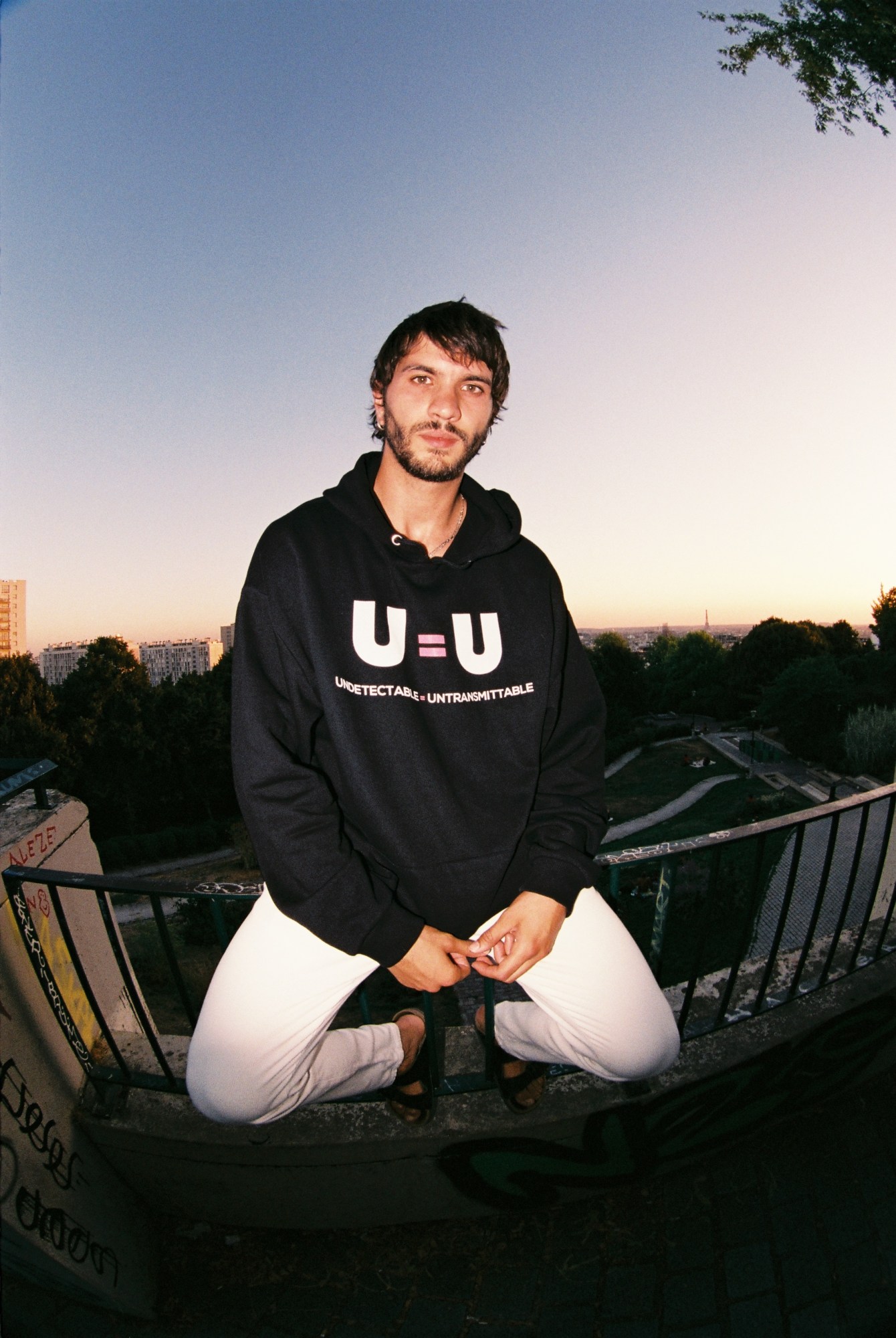
Following the initial shock, Yassin started to research the modern reality of what it means to live with the virus and learned about the effectiveness of the antiretrovial treatment. Commonly known as ART, it successfully decreases the risk of HIV transmission to 0% by reducing an individual’s viral load to levels undetectable in bloodwork. He soon realised that the biggest struggle that living with HIV entailed wasn’t medical, but societal: “I started the treatment only a few weeks after I got infected, which made my viral load go very low, very fast. It only took a pill a day to live a perfectly normal, healthy life and I didn’t feel sick at all. I only felt like something was wrong when I had to disclose my status to people, or guys I was seeing. The fear of disclosing slowly turned my status into the heaviest secret I had to carry and it became harder and harder to keep it over time.”
Ending the taboo surrounding the HIV diagnosis is a life goal for Bruce Richman, founder of the Prevention Access Campaign, the organisation that launched the ‘Undetectable=Untransmittable’ (U=U) campaign in an attempt to spread awareness about antiretroviral treatment. He maintains that the widespread fear-mongering around the topic is still largely influenced by the AIDS crisis of the 80s and 90s, a time when there was no known cure for the virus, and infection typically resulted in certain death. In his opinion, mainstream media depictions have a large part to play in the perpetuation of an outdated rhetoric, such as Netflix’s 13 Reasons Why, which used the virus to dramatically kill off Justin, a series regular played by Brandon Flynn.
“Think about this — right now, millions of people living with HIV are suffering because they and others think they’re infectious. And they’re not,” he says. “I worry [especially] about people with HIV who face the most severe forms of intersecting stigma, racism, and transphobia like Black trans women and sex workers.”
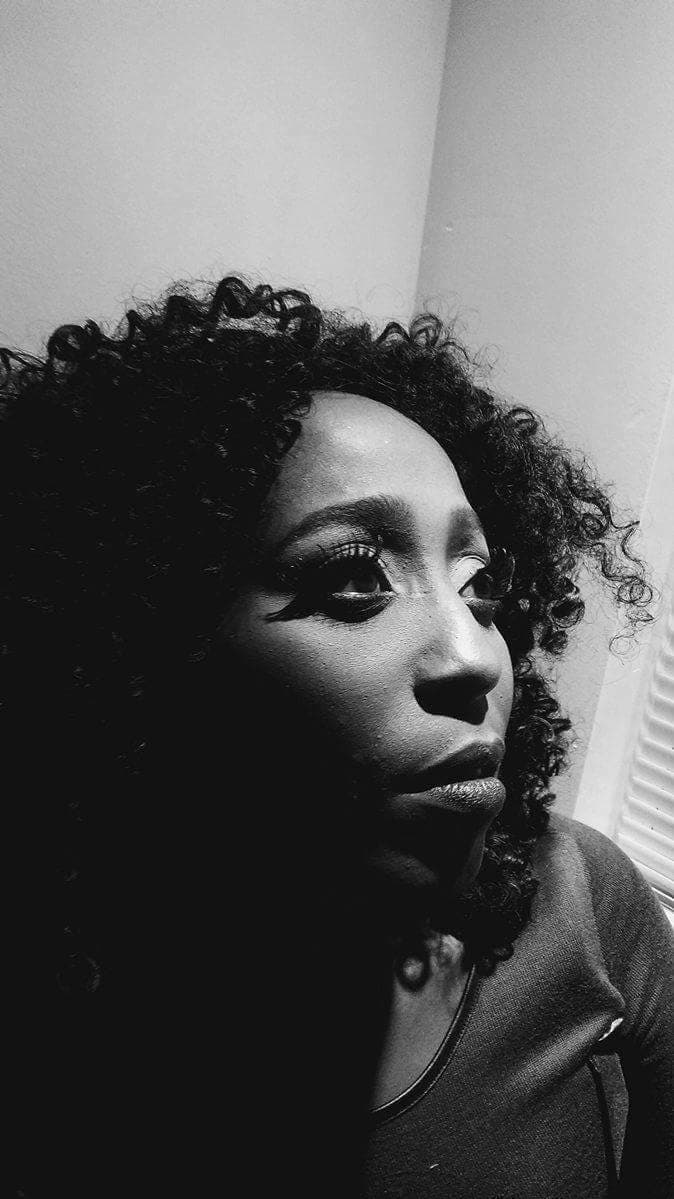
Tiommi J. Luckett, an activist based in Little Rock, Arkansas, and trans woman living with HIV since 2012, agrees regarding the societal detachment that a diagnosis can cause. “The stigma attached to being HIV-positive eats away at a person’s fundamental need for connectedness,” she says. “Sharing one’s status in any relationship could have devastating consequences, such as loss of a relationship, employment, risk of intimate partner violence, or homelessness.”
For Tiommi, becoming an outcast in the community was one the main anxieties after being tested positive: “My initial fears consisted of dying a horrible death in isolation. That image stuck in my head because I watched Philadelphia with Tom Hanks and Denzel Washington. I just knew those lesions would come on my body and I would be a leper to everyone. I was afraid that no one would ever accept my diagnosis and I would die alone. I was afraid of having to disclose my status to potential sexual partners, and terribly afraid that I would not be able to afford the medication.”
Over time, Tiommi realised that those predictions were far from accurate and her life wasn’t going to end after the diagnosis: “I became undetectable and started to speak out openly about living with HIV. I have no issues with intimacy. I have employer sponsored insurance, so access to medication is not a concern of mine. Plus, Arkansas expanded Medicaid [a programme that helps with medical costs for people with limited income and resources], so my medicine was covered even before I started my career.” Tiommi also used her experience to help other HIV-positive people — she’s currently working for Positive Women’s Network [an organisation uniting women living with HIV in America] and sits on a board of Positively Trans, a programme created by the Transgender Law Center.
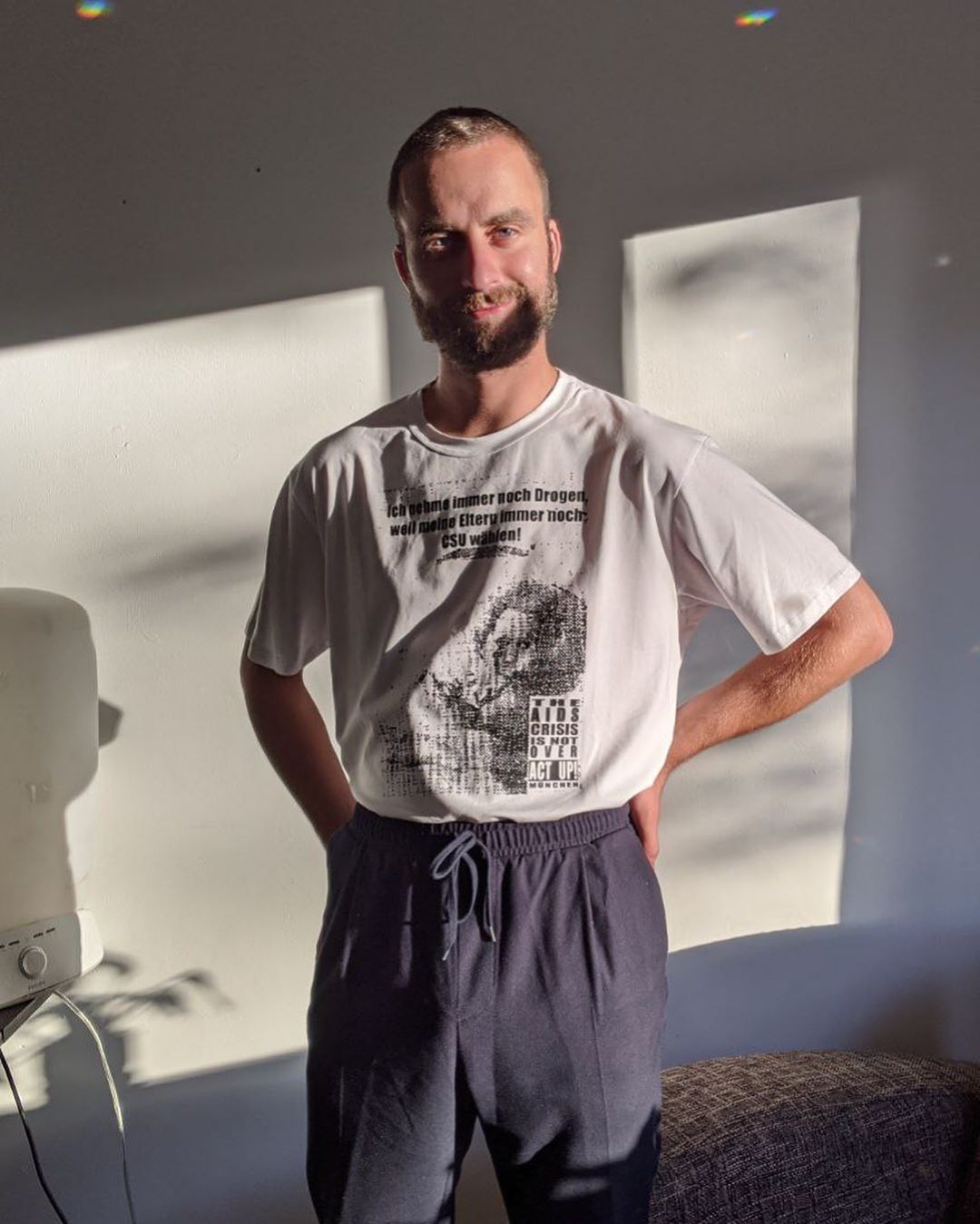
Szymon Adamczak, a Polish artist and LGBTQ+ activist living in Amsterdam, says that while growing up in Poland, the fear of the virus was very much instilled in him. “Ever since I started to get an idea of what sex was all about, HIV was always part of the equation, something ingrained in the act. The fear of the virus was passed to me with little explanation, if any. Back then, I did have basic sex education in school, unlike the teenagers in Poland today who are nowadays taught false sexual health information, imposed by the ultra-conservative government. The rest I would learn while browsing early Polish gay websites, forums, and chatrooms,” he says.
Szymon says that the process of getting tested was also steeped in shame. “Visiting a free-of-charge testing service in Poznań [a city in the west of Poland], located somewhere in a labyrinth of shabby offices and obscure hallways, was incredibly stressful and disheartening. I felt guilty just being there. To me, HIV rhymed with trauma, one that you could transmit [to others].”
After settling in Amsterdam in 2016, he encountered a completely different approach to HIV awareness — the virus was discussed openly and public institutions provided judgement-free support for those who had it. “I was starting a new life, I felt invincible, and I was adventurous,” he says. “Somehow I didn’t take into consideration that a positive HIV diagnosis could become part of my story. When it did, I was very lucid about it. I knew enough not to fear that my life had been declared ‘over’, as some people still do.”

Coming to terms with being seropositive also became a centre of Szymon’s artistic work – in the past few years, his piece An Ongoing Song — a dance performance, in which Szymon reflects on the process of accepting his diagnosis — has been showcased in The Netherlands, Czech Republic, and Poland. Later this year, he’s also launching a research platform in collaboration with Biennale Warszawa called POLSKIE EIDS [POLISH AIDS], as well as Mała publikacja o HIV [Minor publication on HIV], a zine containing interviews with artists and archival material that aims to bring together the visual culture of HIV/AIDS in Poland.
For Florian Dovillez, a DJ living in Berlin, the support of his close community was key for him to overcome the initial shame surrounding the diagnosis. Shortly after testing positive in 2007, he moved to Montreal, where getting the appropriate treatment was far from affordable. “With the visa I had, it was impossible for me to have access to health insurance, so the doctor told me, ‘Either you spend $1200 or you have to go back to Europe to receive treatment — but you need it now.’”
This stress of the situation set him on the path towards opening up. “I was working at a hair salon at the time and told a client that I had to leave the country very soon. I don’t know how, but she understood why. My colleague listened to the conversation and told me to come to his for a drink. So I went to his place and he looked me in the eyes, and told me, ‘You are not alone, me too’, and we spoke about it all night. He was the first HIV+ person that I’d spoken to and he gave me so much energy and hope, as well as encouragement [to keep going].”
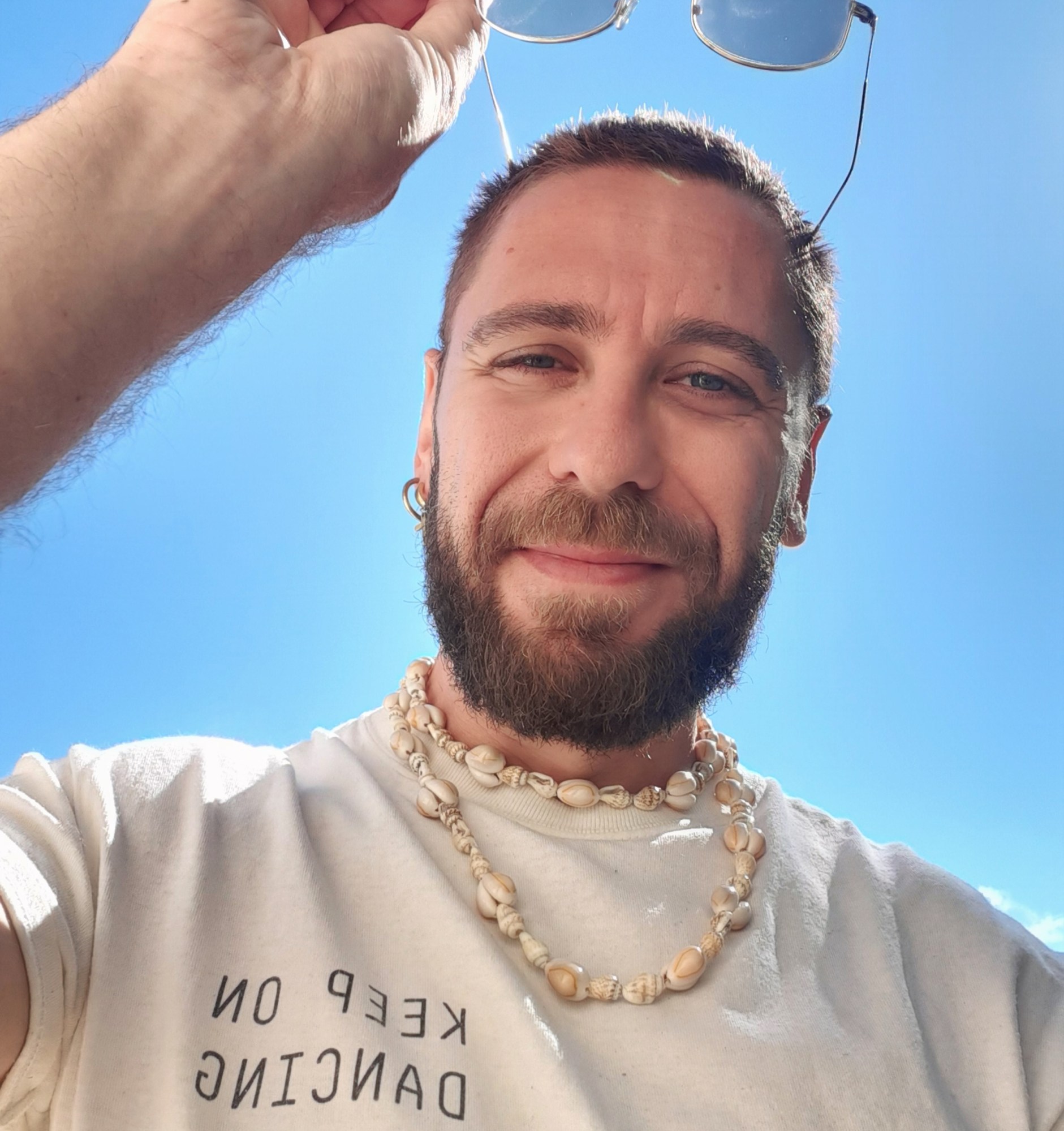
In Bruce’s view, an informed and open attitude is key to changing the conversation: “No one living with HIV, regardless of being undetectable or not, is a danger. All people with HIV can have happy, healthy, safe sex lives. We have the tools to do that,” he explain. “If someone has a detectable viral load, there are still options for hot and safer sex, like condoms and, in some parts of the world, PrEP (a medication that reduces the risk of getting HIV) for the negative partner.”
Emphasising that there are safe options for sex with people who are HIV positive has become one of the focuses of Jason Domino, a sex worker and activist based in London, who launched ‘Porn4PrEP’, a project which uses porn to promote HIV awareness and access to PrEP in the UK and overseas. As part of the initiative, Domino (who’s on PrEP) created a film in which he had unprotected sex with a partner with a detectable viral load, with cutaways to doctors, activists and performers sharing their personal stories about HIV. The aim of the project was to highlight that when taken daily, PrEP minimises the possibility of contracting the virus by 99%: “For better or worse, nowadays, people learn about sexuality through porn, so this project became a way to educate them about PrEP and U=U — they have a right to know about these defense mechanisms, they have a right to life,” explains Domino.
Recently, Jason has also been working with Kayden Gray, a sex worker who’s been open about his positive status and being undetectable, on fighting the stigma within the adult film industry through the ‘Porn Producers for Safety Against Discrimination’ initiative. Although the pledge is focused on fighting discrimination based on the HIV status and promoting sexual health guidelines in porn, it also challenges the negative-positive binary: “The conversation that it’s bringing starts to chip away this ideology where people think of negative as good and positive as bad. When we’re talking about ‘risks’, which is also a term that I believe is outdated, having a negative test result is less certain than being undetectable, as it doesn’t cover the window period, where HIV acquisition may be too recent for it to show up on the results.”
Alex Sparrowhawk, Programme Officer at Terrence Higgins Trust, UK’s leading HIV and sexual health charity, attests to the prevalence of the thought that HIV positive partners are a ‘risk’, despite recently published research, the ‘PARTNER 2’ study, for example, clearly demonstrating the effectiveness of HIV treatment. “Even with the science, stigma remains rife, with Terrence Higgins Trust finding only 19% of UK adults are aware that people on effective treatment can’t pass on HIV, while half said they wouldn’t want to kiss someone with HIV, despite there being zero risk of transmission, with or without treatment,” he says.
“Learning about U=U has empowered people with HIV to have sex, to be intimate, to conceive children without worrying about passing on the virus. It’s time we put facts over fear, data over dogma, and science over stigma.”
Furthermore, while conducting a survey on the subject ahead of their ‘Can’t Pass It On’ campaign last year, Sparrowhawk says that the results were equally alarming: even though the lowest amount of stigma regarding being positive was found among gay people, 45% said they would feel uncomfortable having sex with someone with HIV and on effective treatment (despite zero risk of transmission), while nearly a third were not aware of the realities of the effective HIV treatment.
Tiommi believes the gap between research finds and public opinion is deeply rooted in bigotry, stating that “the biggest misconception about living with HIV is that we somehow are being punished by a god. We are neither dirty nor deviant; we are not at death’s door and we are contributing members to society. HIV is a human condition, and there is no humanity in stigmatising someone with a health condition.”
The HIV stigma needs to be therefore treated as a public health crisis and defied worldwide through awareness campaigns promoted in mainstream media, as well as cooperation with state bodies on infusing sex-positivity into the sphere of education and sexual health services. “Learning about U=U has empowered people with HIV to have sex, to be intimate, to conceive children without worrying about passing on the virus — just like anyone else. It’s time we put facts over fear, data over dogma, and science over stigma,” encourages Bruce.
As Chekkouh’s coming out has shown, the power of a personal testimony is not to be underestimated in this fight – after sharing the post, he received hundreds of messages, both from other HIV+ people that said he gave them strength to share their status, and people who admitted to shaming those living with the virus in the past, but declared that they want to change their approach. He says, “All that powerful digital, but real, energy was something I will never forget. I was like, ‘Why the fuck did I wait for so long to post this shit?’. Sharing my status and seeing all the love I received made me realise that what I thought for so long was my weakness, was in fact something so empowering that can make me shine, and through that, help others that don’t (yet) have the bravery to come out.”
